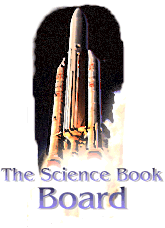|
 You
can purchase this book clicking here. You
can purchase this book clicking here.
If you wish to purchase further titles
already reviewed here, please return each time to SBB.
Using the direct links available at our site is easier than searching by
title, author, or ISBN number.

EDITORIAL INFORMATION
This volume in two parts presents the proceeding of
the 12th Annual AAS/AIAA Spaceflight Mechanics Meeting held in San Antonio,
Texas, January 27-30, 2002.
(Extracted from the Press Release).

GENERAL TABLE OF CONTENTS
- -Foreword.
- -Preface.
- -Contents.
- -Part I:
- -Attitude Determination and Sensors.
- -Attitude Determination for KOMPSAT-2 Using Star
Identification.
-Attitude Determination and Autonomous On-Orbit Calibration of Star
Tracker for the GIFTS Mission.
-Autonomous On-Orbit Calibration Approaches for Star Tracker Cameras.
-Predictive Centroiding for Single and Multiple FOVs Star Trackers.
-Rate Estimator for Windowed Quaternion Estimator.
-Development of Inertial Measurement Sensor Using Magnetic Levitation.
- -Orbital Mechanics I.
- -Stability Bounds for Three-Dimensional Motion
Close to Asteroids.
-The Generalized Sundman Transformation for Propagation of
High-Eccentricity Elliptical Orbits.
-Almost Periodic Orbits Around the Geostationary Points.
-Analytical Formulation of Fast Flyby Trajectories Around a Triaxal
Body.
-Variations, Potentials, and Numerical Integration.
-Orbit Transfers to Lower Altitude Orbits Using Aerobraking.
- -Collision Avoidance and Debris.
- -Introducing the ESA-MASTER 2001 Space Debris
Model.
-Close Geostationary Satellite Encounter Analysis: 1997-2001.
-Analytic Solution for COLA Maneuver Optimization for Near-Circular
Orbits.
-Satellite Collision Analysis Using Genetic Algorithms as a Filter.
-The Effect of the Periodic Covariance Variations on the Probability of
Collision.
-Close Encounters With Multiple Satellites.
- -Attitude Control and Determination.
- -Design of the Reaction Wheel Attitude Control
System for the Cassini Spacecraft.
-Use of Guidance and Control Test Cases to Verify Spacecraft Attitude
Control System Design.
-Attitude Control of Earth-Pointing Spacecraft Using the Reaction Jets
and Magnetic Torques.
-Global Adaptive Stabilization Using Output Feedback for Spacecraft
Attitude Tracking.
-ICESAT/GLAS Laser Pointing Determination.
- -Orbital Mechanics I.
- -Progress Report on U.S. Space Command Astrodynamic
Standards Effort.
-The Atmospheric Neutral Density Experiment.
-Recent Developments of the Raven Small Telescope Program.
-Astrodynamics Research With the Air Force Maui Optical and
Supercomputing Site.
-Satellite Ephemeris Representation Using Hybrid Compression.
-Precise Onboard Ephemeris Propagation Method Using CW Frame and
Multiple Compressions.
-A Preliminary Analysis of the SAC-C Orbit Reconstruction Using the
Experimental GPS/GLONASS Receiver Lagrange.
- -Interplanetary Missions I.
- -A Low-Cost and Low-Technology Mission and System
Design Concept for Mars Entry, Descent and Landing.
-Celestial Navigation on the Surface of Mars.
-Optical Navigation for the Mars Premier 2007 Orbiter Approach Phase.
-The Effect of USO Stability on One-Way Doppler Navigation of the Mars
Reconnaissance Orbiter.
-Low-Thrust Orbit Transfer Around Minor Planets.
-A Gravity Model for Navigation Close to Asteroids and Comets.
-Navigation of Aerial Platforms on Titan.
- -Formation Flying.
- -The Characterization of Formation Flying Satellite
Relative Motion Orbits.
-A Solution of the Elliptic Rendezvous Problem With the Time as
Independent Variable.
-A Third-Order Analytical Solution for Relative Motion With a Circular
Reference Orbit.
- -Orbital Mechanics III.
- -Orbit Design and Station Keeping Strategy of the
Co-Located Geostationary Satellites.
-An Algorithm for Autonomous Longitude and Eccentricity Control for
Geostationary Spacecraft.
-Autonomous Landing Manoeuvre by Landmark Tracking Technique.
-An Efficient Searching Strategy Based on the Capabilities of a Single
Ground Station.
-Optimal Transfer Between Circular and Hyperbolic Orbits Using
Analytical Maximum Thrust Arcs.
- -Interplanetary Missions II.
- -Cassini Orbit Reconstruction From Earth to
Jupiter.
-Pioneer and Voyager Jupiter Encounter Orbit Reconstruction in the ICRF
System.
-Ballistic Jupiter Gravity-Assist, Perihelion-DeltaV Trajectories for a
Realistic Interstellar Explorer.
-Precise Determination of Accelerometer Proof Mass.
-Earth-Capture Trajectories Using Solar Electric Propulsion.
-Hyperbolic Rendezvous for Earth-Mars Cycler Missions.
|
![]()

![]()